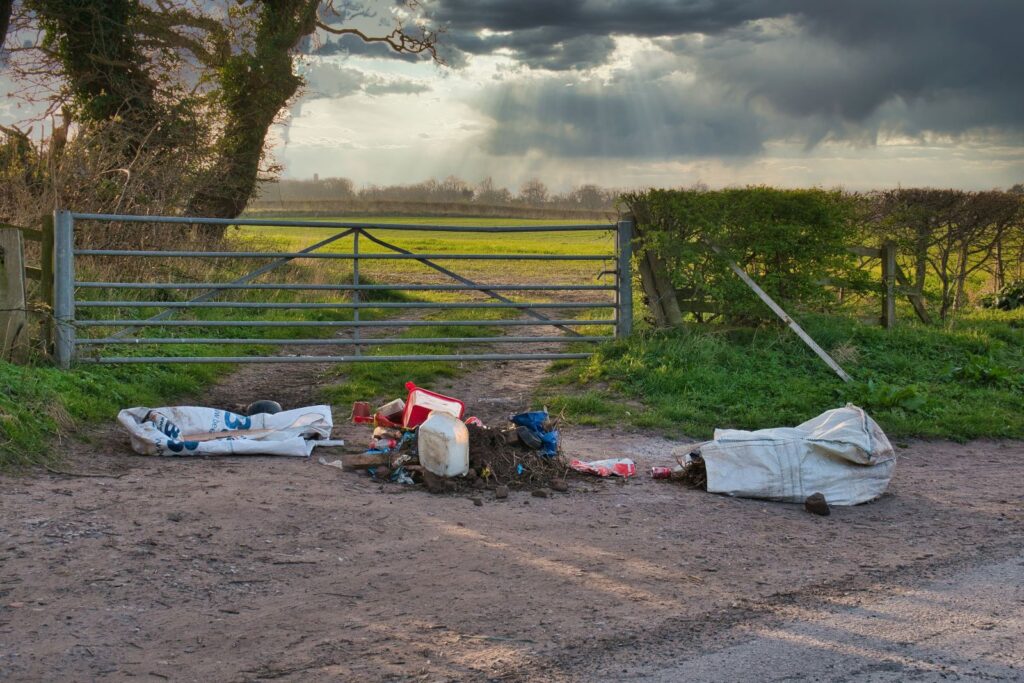Fines increased for littering and fly tipping in crackdown on waste crime
13th July 2023
On-the-spot fines for litter, graffiti and fly-tipping are set to rise as the government moves to clamp down on anti-social behaviour that harms nature and communities, environment minister Rebecca Pow announced last week.
The new upper limit to littering fines will deter people engaging in criminal activities that are damaging to wildlife and nature, create eyesores and pose a financial burden to farmers who must bear the cost of cleaning up waste dumped on their land.
The announcement comes as a recent Environment Agency survey revealed that nearly a fifth of all waste in England may be illegally handled, costing the economy £1 billion per year through evaded tax, environmental and social harm and lost legitimate business.
To help councils clamp down on waste crime, the government has laid a statutory instrument increasing the upper limits for various fixed penalty notices (FPNs) this Monday (10th July), which means:
- The maximum amount those caught fly-tipping could be fined will increase from £400 to £1,000
- The maximum amount those who litter or graffiti could be fined will increase from £150 to £500
- The maximum amount those who breach their household waste duty of care could be fined will increase from £400 to £600
These changes are set to come into force on 31st July and local authorities will have the freedom to determine the rates offenders should pay within the limits above.
In addition to increasing the upper limit on fines, the government has launched a consultation on ringfencing the money raised from fining criminals to fund further enforcement and clean-up activities.
The consultation seeks to understand more about how FPN receipts are currently spent and what the impacts of redirecting these funds would be.
Ensuring offenders face tougher consequences is part of the government’s plan for councils to take effective enforcement action against those who intentionally or carelessly damage their environment, with the aim of ultimately changing behaviour and stopping further offences.
Environment minister Rebecca Pow said: “We’re taking action right across government to crack down on anti-social behaviour and ensure waste criminals face justice – but it’s vital that communities have the tools they need to address the problem as well.
“That’s why we are supporting local authorities by increasing the upper limit for on-the-spot fines and ringfencing the proceeds for clean-up and enforcement operations.”
In 2021/22, councils dealt with almost 1.1 million incidents of fly-tipping and issued 91,000 fines, along with other enforcement actions. In England, a total of 4,156 incidents were reported to be agriculture-related in the same period, costing farmers £1,000 to £10,000 in clean-up costs.
The higher fines to crack down on littering and fly tipping comes alongside Defra’s wider work to tackle waste crime and take the fight to offenders.
In April, grants totalling £775,000 to help councils roll out a range of projects to crack down on fly-tipping were announced. Twenty-one local authorities will benefit from the grants, with schemes including roadside CCTV and social media campaigns in Plymouth and targeted surveillance at hotspot areas in Pendle.

